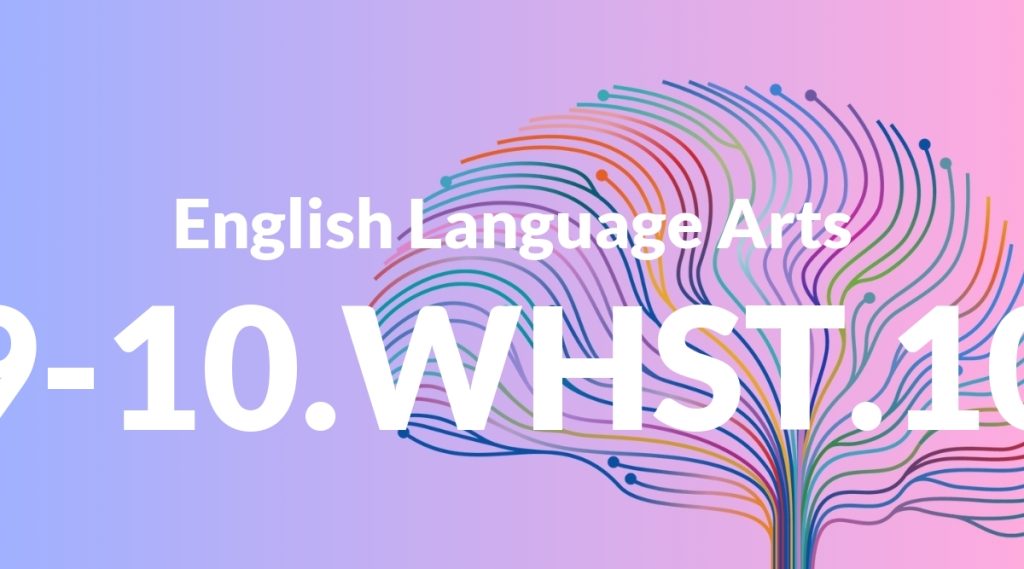Standard: 9-10.WHST.1 – Write arguments focused on discipline-specific content.
Grade level: Grade 9-10
Subject: English Language Arts
Domain: Writing: History, Science & Technical Subjects
Teacher Overview
This standard focuses on teaching students to write arguments that are specific to different disciplines such as history, science, and technical subjects. It is important because it helps students develop the ability to tailor their writing to the conventions and expectations of different fields, which is a crucial skill for both academic and professional success. Students should be able to construct basic arguments using claims, evidence, and reasoning. They should also have some familiarity with the content and conventions of the discipline they are writing about.
After mastering this standard, students will be able to write more advanced arguments, including those that address counterarguments and use more sophisticated forms of evidence. They will also be better prepared for college-level writing and professional writing tasks.
Common Misconception 1
A common misconception is that all arguments are structured the same way, regardless of the discipline. This is incorrect because different disciplines have unique conventions and expectations for argumentative writing.
Intervention 1
To address this misconception, provide students with examples of argumentative writing from different disciplines and highlight the unique features and conventions of each.
Common Misconception 2
Another misconception is that personal opinions are sufficient for constructing arguments. This is incorrect because effective arguments in academic and professional contexts require credible evidence and discipline-specific content.
Intervention 2
To remediate this misconception, emphasize the importance of using credible evidence and discipline-specific content to support arguments. Provide examples and practice opportunities for students to develop these skills.
Prerequisite Knowledge
Students should have a basic understanding of how to construct an argument, including the use of claims, evidence, and reasoning. They should also be familiar with the specific content and conventions of the discipline they are writing about.
Subsequent Knowledge
After mastering this standard, students will be able to write more advanced arguments, including those that address counterarguments and use more sophisticated forms of evidence. They will also be better prepared for college-level writing and professional writing tasks.
Instructional Activities
- Analyzing examples of argumentative writing from different disciplines
- Writing practice essays on discipline-specific topics
- Peer review sessions focused on the use of evidence and discipline-specific conventions
- Workshops on how to find and evaluate credible sources
- Debates or discussions on controversial topics within specific disciplines




